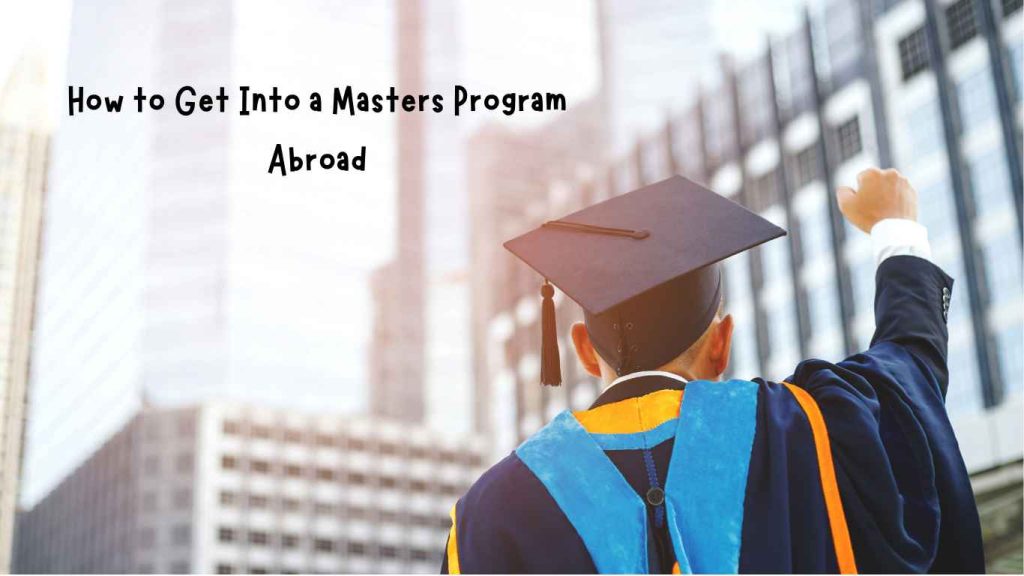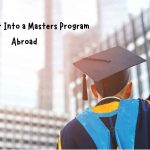Masters Program Abroad – Pursuing a master’s degree abroad can be a life-changing experience, offering academic excellence, cultural immersion, and global career opportunities. However, the application process can seem overwhelming without proper guidance. This article will walk you through the essential steps to secure admission to your dream international graduate program.


Start Early with Research and Planning
The journey to studying abroad begins at least 12-18 months before your intended start date. Begin by researching countries and universities that excel in your field of interest. Consider factors such as:
- Program reputation and rankings
- Faculty expertise and research opportunities
- Course structure and specializations
- Language of instruction
- Program duration and cost
- Scholarship availability
- Post-graduation work opportunities
- Masters Program Abroad
Create a spreadsheet to track application deadlines, requirements, and costs for each program you’re considering. Remember that application timelines vary significantly between countries and institutions. Masters Program Abroad
Understand Admission Requirements
Most international master’s programs require:
- Academic credentials: Bachelor’s degree with specific GPA requirements (often converted to the host country’s grading system)
- Standardized tests: GRE/GMAT for many programs, especially in business, engineering, and sciences
- Language proficiency: TOEFL, IELTS, or other language tests if the program isn’t in your native language
- Letters of recommendation: Usually 2-3 letters from professors or employers
- Statement of purpose/Personal statement: An essay explaining your academic background, career goals, and why you’re a good fit for the program
- CV/Resume: Highlighting your academic achievements, work experience, and relevant skills
- Portfolio: Required for certain fields like architecture, design, or fine arts
Excel in Language Proficiency Tests
If English isn’t your first language and you’re applying to English-taught programs, achieving competitive TOEFL or IELTS scores is crucial. Start preparing at least 6 months in advance by:Masters Program Abroad
- Taking practice tests to identify weak areas
- Using official preparation materials
- Considering a preparation course if necessary
- Immersing yourself in English through reading, listening, and speaking
Similarly, if applying to programs taught in other languages, ensure you meet their proficiency requirements.
Craft a Compelling Personal Statement
Your statement of purpose is your opportunity to stand out. A strong statement should:
- Clearly articulate why you’re interested in the specific program
- Connect your past experiences with your future goals
- Demonstrate knowledge of the program and university
- Highlight what unique perspective you bring
- Show how the program aligns with your career objectives
- Be concise, well-structured, and error-free
Tailor each statement to the specific program rather than using a generic template.
Secure Strong Letters of Recommendation
Approach potential recommenders well in advance—at least 2-3 months before deadlines. Choose people who know your academic abilities and can speak to your potential for graduate study. Provide them with:
- Your current CV/resume
- Your statement of purpose
- Information about the programs you’re applying to
- Reminder of your relevant work or projects with them
- Clear deadlines and submission instructions
Navigate Financial Considerations
Studying abroad can be expensive, but numerous funding options exist: Masters Program Abroad
- University scholarships: Many institutions offer merit-based scholarships specifically for international students
- Government scholarships: Both your home country and destination country may offer funding
- External scholarships: Research field-specific or demographic-based scholarships
- Research/teaching assistantships: These positions often provide tuition waivers and stipends
- Education loans: Compare options from both home country and international providers
- Work-study options: Understand regulations for part-time work during studies
Start researching financial aid opportunities simultaneously with program research, as some scholarship applications have earlier deadlines than program applications.
Prepare for Visa Applications
Once accepted, you’ll need to apply for a student visa. Requirements vary by country but typically include: Masters Program Abroad
- Acceptance letter from the university
- Proof of financial resources to cover tuition and living expenses
- Health insurance coverage
- Valid passport
- Visa application forms and fees
- Medical examinations in some cases
Begin the visa process immediately after receiving acceptance, as it can take several weeks or months to process.
Plan for Cultural Adjustment
Beyond academics, prepare for cultural adaptation by:
- Learning basic phrases in the local language
- Researching cultural norms and customs
- Connecting with current international students from your country
- Joining social media groups for incoming students
- Arranging accommodation well in advance
- Setting up banking and phone services
Securing a fully funded scholarship to study abroad - click for more





